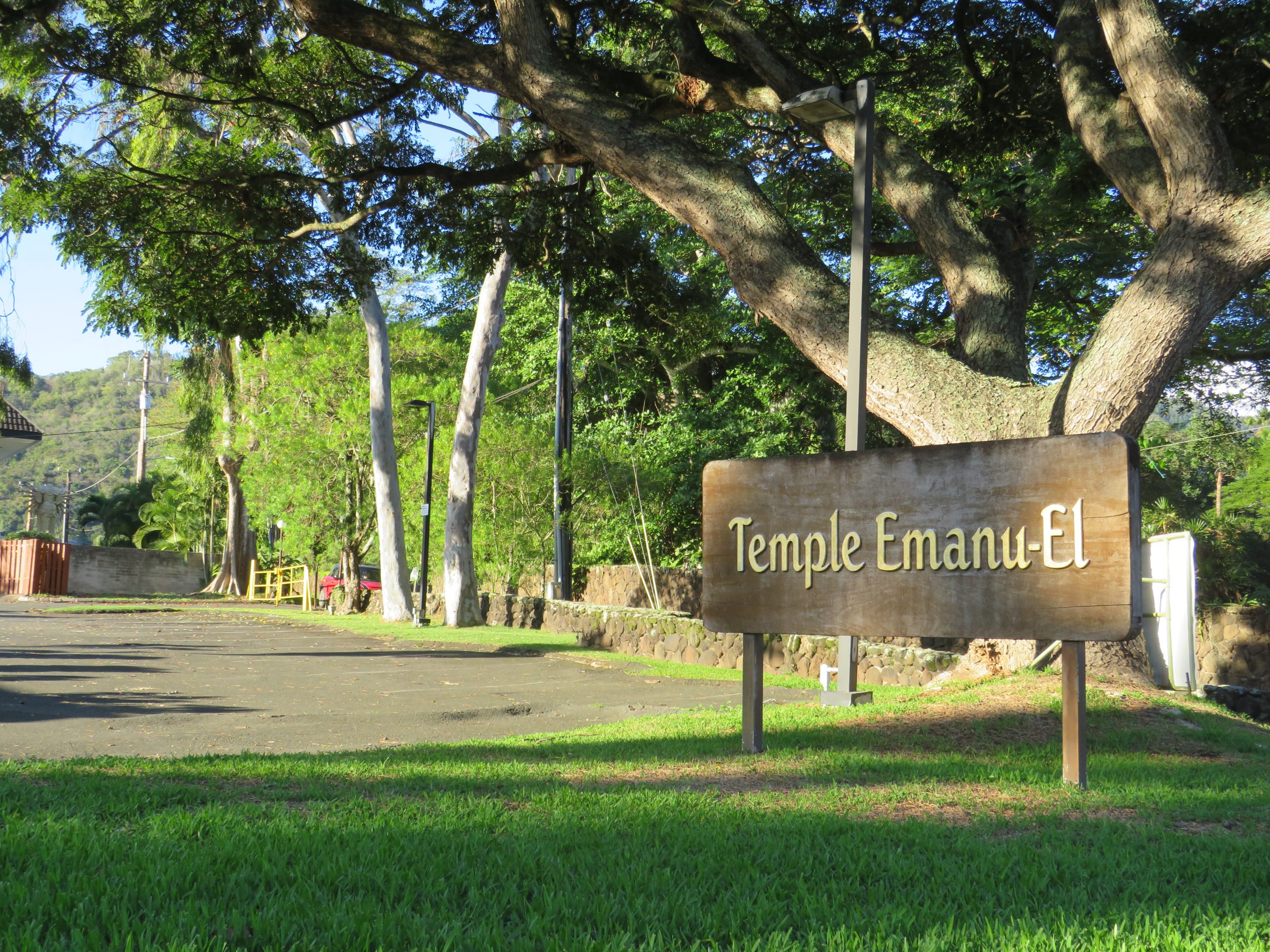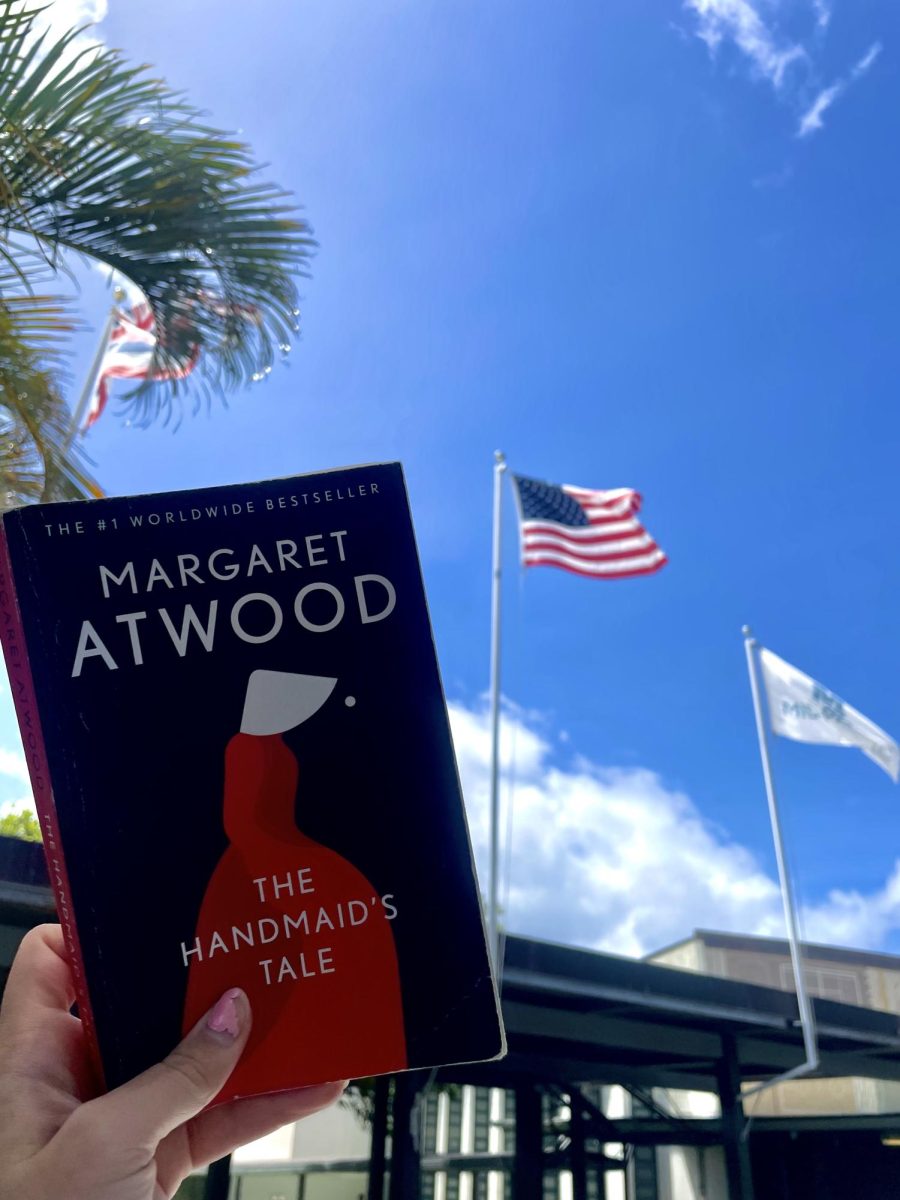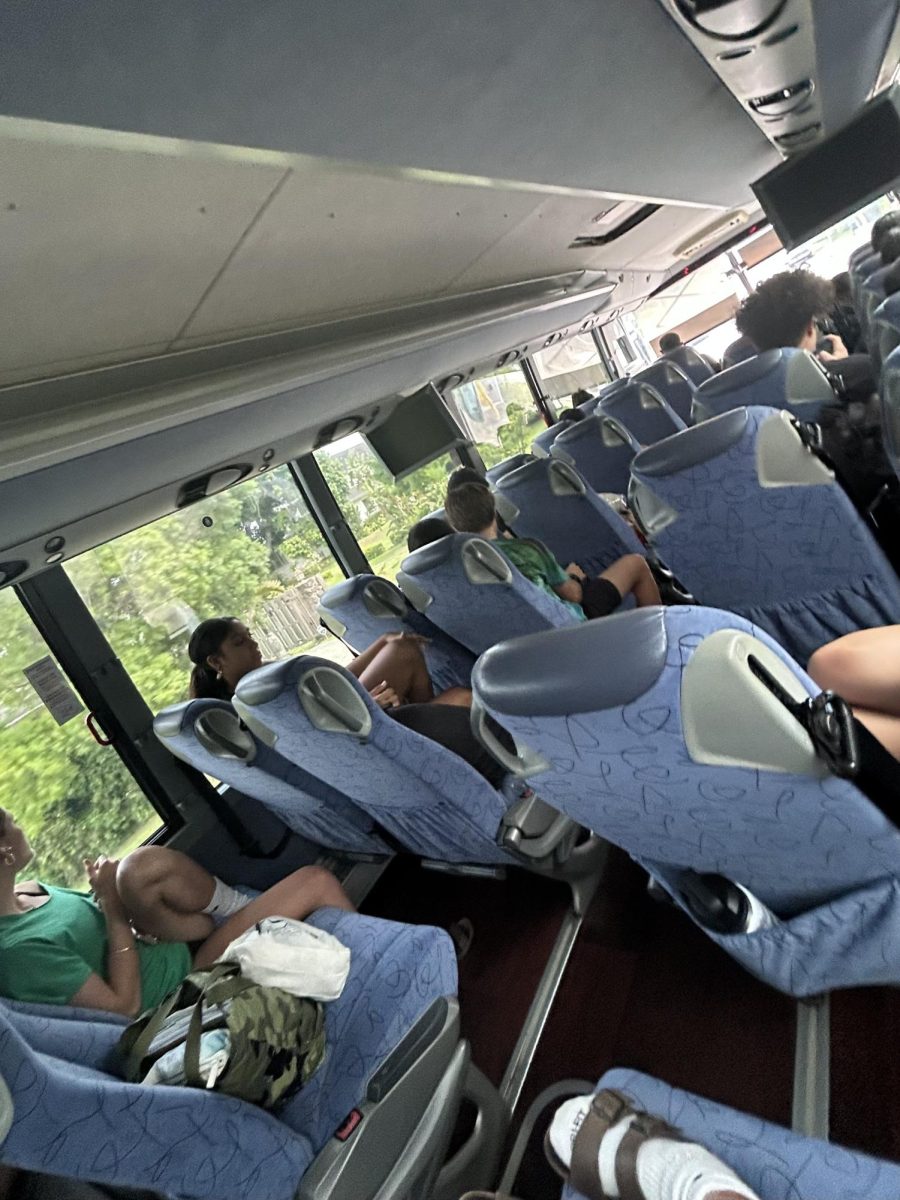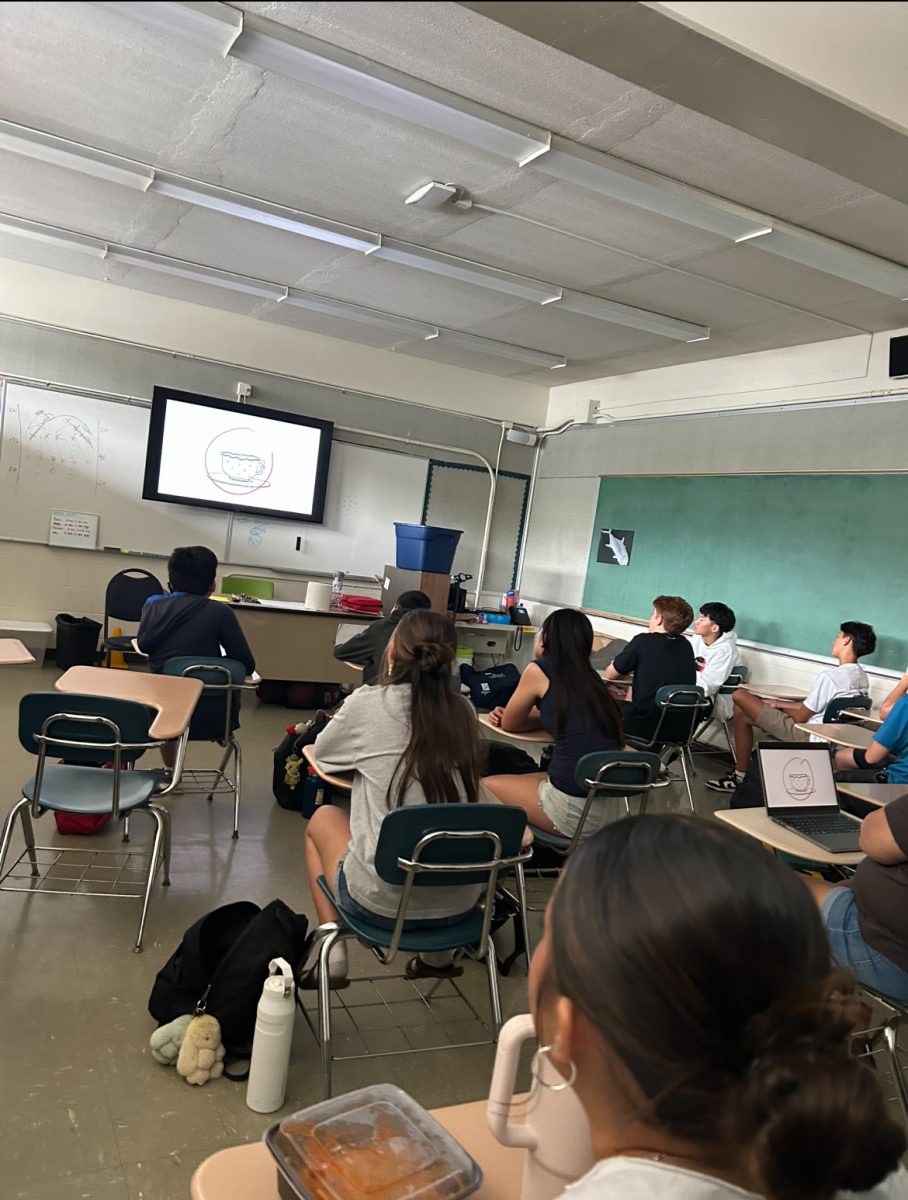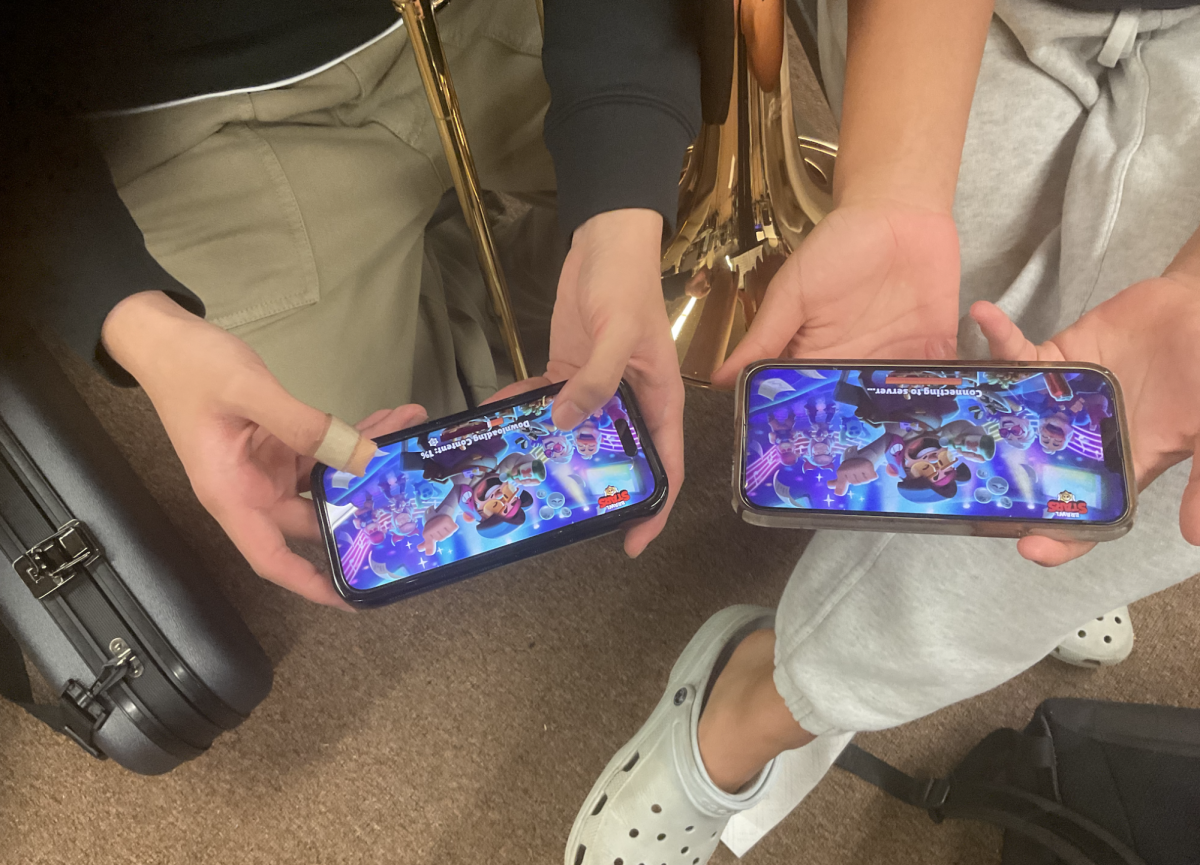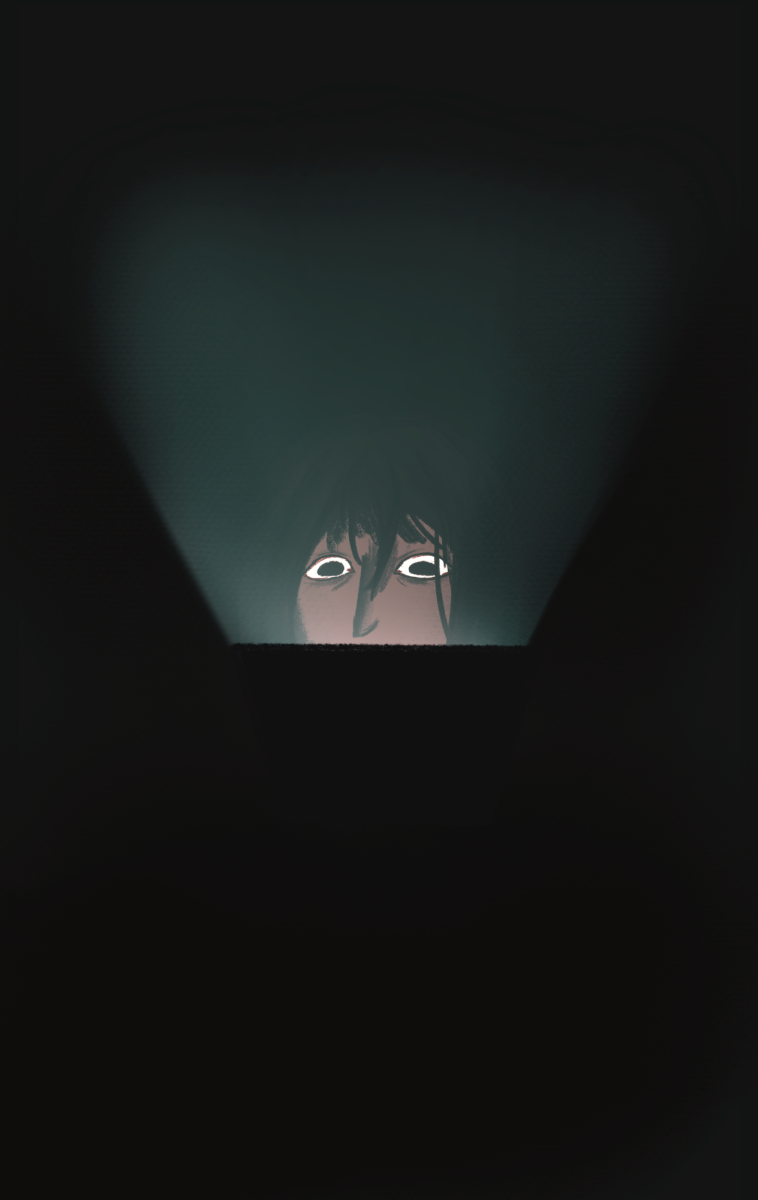Antisemitism on the Rise
Shots fired at Jewish schools in Canada, vulgar epithets yelled on school campuses, death threats made online– Jewish life is again under assault.
With nearly 3,700 anti-semitic attacks reported in the U.S last year and tensions rising in the Israel-Hamas war, there is a sense of dread amongst Jewish people of America.
Since Hamas’s attack in October and Israel’s retaliation, anti-semitism is becoming an increasing lproblem across universities throughout the U.S and Canada.
At local Honolulu synagogue, Temple Emanu-El, security is increasing following recent events.
Though it seems bizarre for people to feel such rage towards others due to a war they have nothing to do with, the American Jewish community with no ties to Israel are being harassed and attacked for what Israel is doing in Gaza.
It’s important to understand that not all Jewish people are Israeli, and even so, what Israel’s government is doing to Palestine does not represent all of the Israeli people.
A poll taken in Israel shows 76% of Israel’s citizens want their prime minister out of office–. that means 76% don’t support what their government is doing.
People often associate Judaism with Israel and therefore assume all Jewish people, even non-Israeli Jews, support Israel. However, statistics show that even most of Israel doesn’t support their government’s actions.
Senior Chanel Awai, a Jewish Mid-Pacific student, says that people have certain misunderstandings about the situation.
“I think it’s unfair because you can’t really choose sides… in a way they’re both in the wrong,” Awai said.
This is true; tragedy in any context is awful. One can mourn both Israel’s killed and Palestine’s killed. Hamas’ actions can be condemned as well as and what Israel is doing.
There are no “good” actions in war, just less casualties.
This conflict and politicized war is a source of tensions within the Jewish community. People are looking toward when they will feel safe again, when they can go to school or bring their children to synagogue without being called a slur or being shot at.
“I think that the conflict needs to be settled, but I understand that could take many years. People need to educate themselves and be less aggressive,” Awai said.
No one is immune to bias. While we wait for more action to be taken, educating ourselves on both the war and other religions can be a helpful tool in taking a step back from our biases.
“Don’t limit yourself to only one news station, because that creates a lot of bias in perspective and limits the knowledge you’re receiving. Maybe expand your resources and have an open mind to other people’s opinions,” Awai said.
She agrees that safety may start to be more of a factor in Jewish students’ college decisions.
Our school is not immune to anti-semitism.
Regarding a recent incident of anti-semitism on campus, Assistant Principal for Student Life, Rebecca Hodge, stated that appropriate action was taken.
The school is working to be more proactive following incidents of discrimination.
“Moving forward, we recognize the importance of not only addressing individual incidents but also proactively fostering a culture of inclusivity and respect.” Hodge said.
She said several steps are being implemented, including an increase in awareness and education, providing counseling services for affected students, and promoting an environment where students feel safe to report any concerns. Finally, the administration will continuously review and update school policies to make them more effective in preventing and addressing hate speech.
UH History Professor, and former speaker at Mid-Pacific’s old comparative religion class, Peter Hoffenberg, said that risk to Jewish life in Hawai’i is at an all-time high.
He said while there are a handful of incidents every year, he is seeing more incidents than in the rest of his 30 years there.
“A couple or a handful a year doesn’t really qualify as something to be overly worried about. Each incident is important. But we can talk to the students and they can understand that they are generally isolated. Now after October (when Hamas attacked Israel), there are more incidents. I would say there’s some coordination among the people who are committing the incidents. The incidents have faculty support. It’s an entirely different game right now,” Hoffenberg last.
Temple Emanu-El is not the only place heightening security, Hoffenberg says UH’s Hillel group (Jewish student organization) has always had security measures, prior to the events of October 7 and after.
“We do not share our meeting times on Facebook. We often advertise that an event will be coming up, but you have to email the director directly or speak with the director directly. We’ve been doing that for a while, because of general issues in this country with Jewish groups,” Hoffenberg said.
While antisemitism has become an increasing problem at UH, it is even more prominent at universities across the east coast where there is a higher population of Jewish students.
Harvard was called “ground zero for anti-semitism” at a five-hour campus anti-semitism hearing. Several Ivy league presidents have been called to Washington D.C. this week to explain the rise of antisemitism on their campuses.
While antisemitism is clearly growing in the U.S, it’s not new. People have always had their biases or faced discrimination. The problem is that it won’t stop growing. How are we supposed to stop it when we can’t even slow it down?
“I want to assure you that our school takes any form of hate speech, including antisemitic comments, very seriously. The emotional and physical safety of our students is a top priority,” Hodge said.


